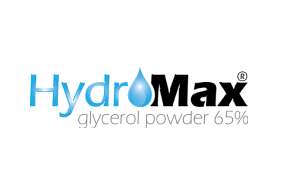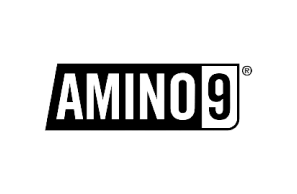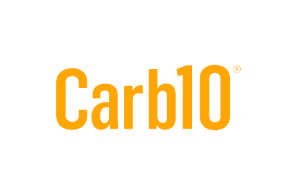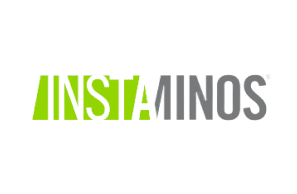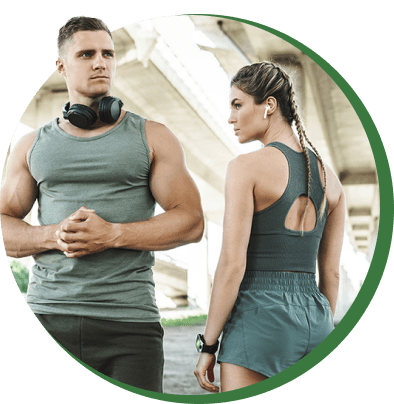Discover the patented Nitrosigine® complex, clinically proven to enhance nitric oxide production, improve blood flow, and boost mental focus and...

FASTER RECOVERY
FASTER RECOVERY
Faster recovery is the process of allowing your body to repair and rebuild the tissues damaged during exercise, injury, or surgery so that you can return to your regular activity and perform at your best again.
Ingredients
Specialty
Ingredients
Specialty Ingredients
Goal OVERVIEW
The purpose of recovery is to allow your body to repair and rebuild the tissues damaged during exercise and injury or sickness. This includes your muscles, tendons, ligaments, and bones. For our purposes, we will focus on recovery from exercise and competition. Regardless of what one might be recovering from, the recovery process also helps to reduce inflammation and improve your body’s ability to adapt to stress. It should be noted that recovery can be achieved through various methods, including rest, hydration, nutrition, and sleep. The more aspects of recovery that one manages, the faster recovery can happen.
What You Should Know
It is important to remember that everyone is different and will heal at their own pace. However, by taking steps to improve your overall health and following your treatment plan, you can give yourself the best chance of a faster recovery. Listen to your body. Don’t push yourself too hard during your recovery. If you are feeling pain, take a break. Be patient. Recovery takes time. Don’t expect to be back to your normal activities overnight.Set realistic goals. Don’t set yourself up for disappointment by setting unrealistic goals for your recovery, and Stay positive. A positive attitude can help you heal faster.
FOOD FOR THOUGHT
Envision a determined football player injured on Sunday, striving for rapid recovery before next week’s game. Just as in the gym, optimal recovery is vital. Imagine training chest on Monday and again on Thursday – prioritizing thorough recuperation during the days in between is key for steady progress. Sleep, nutrition, and hydration are recovery cornerstones. Incorporate active recovery techniques like stretching and light aerobic exercises. Like football, your body thrives when given time to rebound. Embrace full recovery for peak performance on the field and in your fitness journey. In the end, one needs to be 100% recovered to perform and compete at his/her best.

SHAGANDHA® BY SABINSA
Shagandha® is a standardized powdered extract from the roots of Withania somnifera, commonly known as ashwagandha. Shagandha® offers various health benefits, including reducing stress, anxiety, and insomnia while improving cognitive function, reducing inflammation, and boosting the immune system. It is available in capsules, powders, and teas and is often used in herbal mixtures. Considered to be a breakthrough Adaptogenic.
Sponsored Content
FAQ
Speeding up recovery from exercise is essential to maximize the benefits of your workouts and minimize the risk of overtraining and injury. It’s all about recovery!
Here are some effective strategies to help your body recover more efficiently:
1. Proper Nutrition:
- Consume a balanced post-workout meal with carbohydrates to replenish glycogen stores, protein to aid in muscle repair, and healthy fats to support overall recovery.
2. Hydration:
- Stay well-hydrated before, during, and after exercise. Proper hydration supports circulation, nutrient transport, and overall recovery.
3. Rest and Sleep:
- Get adequate sleep, as it’s during sleep that your body repairs and rebuilds muscle tissue. Aim for 7-9 hours of quality sleep each night.
4. Active Recovery:
- Engage in light activities such as walking and swimming on rest days. Active recovery promotes blood circulation, which aids in flushing out metabolic waste and delivering nutrients to muscles.
5. Foam Rolling and Stretching:
- Use foam rollers and perform static stretches to help release muscle tension and improve flexibility.
6. Massage:
- Regular massages can help relax muscles, improve blood circulation, and reduce muscle soreness.
7. Cold and Hot Therapy:
- Alternating between cold and hot treatments (like ice packs and warm baths) can help reduce inflammation and promote blood flow.
8. Nutritional Supplements:
- Certain supplements might support recovery, such as protein, branched-chain amino acids (BCAAs), and antioxidants. However, consult a healthcare professional before using supplements.
9. Proper Warm-Up and Cool-Down:
- Always warm up before exercising to increase your heart rate and prepare your muscles gradually. After your workout, cool down with light aerobic activity and stretching.
10. Listen to Your Body:
- Pay attention to your body’s signals. If you’re feeling excessively fatigued or experiencing pain, it might be a sign that you need more rest.
11. Manage Stress:
- Chronic stress can impact recovery, so practice stress-reduction techniques such as deep breathing, meditation, or mindfulness.
12. Stay Consistent with Workouts:
- Consistency in your training routine helps your body adapt more effectively and reduces the likelihood of overtraining.
13. Avoid Overtraining:
- Overtraining can lead to fatigue and an increased risk of injury. Incorporate rest days into your routine and vary the intensity of your workouts.
14. Stay Hydrated and Nourished During Exercise:
- Drinking water and consuming small amounts of carbohydrates during prolonged exercise can help maintain energy levels and delay fatigue.
15. Gradual Progression:
- Gradually increase your workouts’ intensity, duration, and frequency to allow your body to adapt without putting excessive strain on it.
Remember that recovery is a crucial part of your fitness journey. Over time, your body becomes more resilient, and recovery practices become integral to your overall fitness routine. If you have specific health conditions or concerns, consulting with a healthcare or fitness professional is a good idea to tailor a recovery plan that suits your needs.
Several supplements support exercise recovery by aiding in muscle repair, reducing inflammation, and replenishing nutrients. However, it’s important to note that while some research suggests potential benefits, the effectiveness of supplements can vary, and individual responses can differ. Always consult a healthcare professional before adding any supplements to your routine.
Here are some supplements that are commonly associated with helping accelerate recovery:
1. Protein Supplements:
- Protein is essential for muscle repair and growth. Consuming a protein source after workouts can support muscle recovery and reduce muscle soreness.
- Sources: Whey protein, casein protein, plant-based protein (e.g., pea, rice, hemp).
2. Branched-Chain Amino Acids (BCAAs):
- BCAAs are amino acids (leucine, isoleucine, and valine) that play a role in muscle protein synthesis and may reduce muscle protein breakdown.
- Some research suggests that BCAA’s help decrease muscle soreness and promote recovery.
3. Creatine:
- Creatine is a naturally occurring compound that helps supply energy to muscles during high-intensity activities.
- Research indicates that creatine supplementation may improve exercise performance, muscle recovery, and muscle strength.
4. L-Glutamine:
- L-glutamine is an amino acid that supports immune function and aids in muscle recovery.
- Intense exercise can lead to decreased glutamine levels, and supplementation might help prevent overtraining and support recovery.
5. Turmeric/Curcumin:
- Curcumin, a compound found in turmeric, has anti-inflammatory properties that may help reduce post-exercise inflammation and muscle soreness.
6. Omega-3 Fatty Acids:
- Omega-3s have anti-inflammatory effects and may help reduce exercise-induced inflammation and improve recovery.
7. Vitamin D:
- Vitamin D plays a role in muscle function, immune health, and bone health.
- Adequate vitamin D levels contribute to better recovery and overall exercise performance.
8. Antioxidants (Vitamin C and Vitamin E):
- Antioxidants help combat oxidative stress and reduce inflammation caused by intense exercise.
- Vitamin C and vitamin E are examples of antioxidants that may support recovery.
9. Tart Cherry Extract:
- The tart cherry extract contains compounds with anti-inflammatory properties that might help reduce muscle soreness and inflammation after exercise.
10. Magnesium:
- Magnesium is involved in muscle contraction and relaxation. It may help reduce muscle cramps and support recovery.
11. Zinc:
- Zinc plays a role in immune function and tissue repair, which are essential for recovery.
12. Electrolytes:
- Electrolyte imbalances can occur during intense exercise and contribute to muscle cramps and fatigue. Replenishing electrolytes helps maintain proper fluid balance.
It’s important to remember that supplements should be used to complement a well-balanced diet and healthy lifestyle. Nutrients obtained from whole foods are generally preferred over supplements. Additionally, individual needs vary based on exercise intensity, frequency, and personal health conditions. Consulting a healthcare professional or registered dietitian can help you determine which supplements might be appropriate for your recovery needs.
Overtraining, also known as overtraining syndrome (OTS), occurs when the body doesn’t receive enough time to recover between workouts, leading to physical and mental fatigue, decreased performance, and an increased risk of injury. Recognizing the signs and symptoms of overtraining is crucial to prevent long-term adverse effects.
Here are some common signs and symptoms of overtraining:
1. Persistent Fatigue:
- Feeling constantly tired and having low energy levels, even after a good night’s sleep.
2. Decreased Performance:
- A noticeable decline in exercise performance, strength, speed, or endurance.
3. Increased Perceived Effort:
- Exercise feels much more demanding than usual, and the same workload becomes more challenging.
4. Poor Recovery:
- Feeling sore, achy, or stiff for an extended period after exercise.
5. Frequent Illness:
- A weakened immune system leads to increased susceptibility to infections, colds, and other illnesses.
6. Mood Changes:
- Mood disturbances such as irritability, mood swings, anxiety, or depression.
7. Insomnia or Sleep Disturbances:
- Difficulty falling asleep, staying asleep, or experiencing poor sleep quality.
8. Elevated Heart Rate at Rest:
- An elevated resting heart rate that persists over time may indicate stress on the body.
9. Loss of Appetite:
- A reduced desire to eat leads to potential weight loss.
10. Persistent Muscle Soreness:
- Feeling constantly sore and experiencing delayed recovery after workouts.
11. Decreased Motivation:
- A lack of enthusiasm or interest in exercise and training.
12. Inability to Focus:
- Difficulty concentrating, decreased mental clarity, and poor decision-making.
13. Weakened Immune System:
- An increased frequency of illness and slower recovery from injuries or illnesses.
14. Hormonal Imbalances:
- Hormonal disruptions include changes in menstrual cycles for women or changes in testosterone levels for men.
15. Loss of Enthusiasm:
- A lack of enjoyment and enthusiasm for activities you used to love.
It’s important to note that some of these signs and symptoms can also be caused by factors other than overtraining, such as other health conditions or stress. Suppose you suspect you may be experiencing overtraining. In that case, it’s advisable to take a break from intense exercise, allow your body to recover, and consult with a healthcare professional or fitness expert. Prevention is key—listen to your body, prioritize rest and recovery, and avoid excessive training without adequate rest days. Balancing your workouts with proper nutrition, sleep, and stress management is essential for long-term physical and mental well-being.
Related Videos
Articles
The recovery period after exercise is when your body repairs and strengthens muscle tissue, refuel energy stores and adapts to...
Assess the effects of Caffeine in Monster energy drinks on the body, identifying its impact, benefits, and potential risks including...




